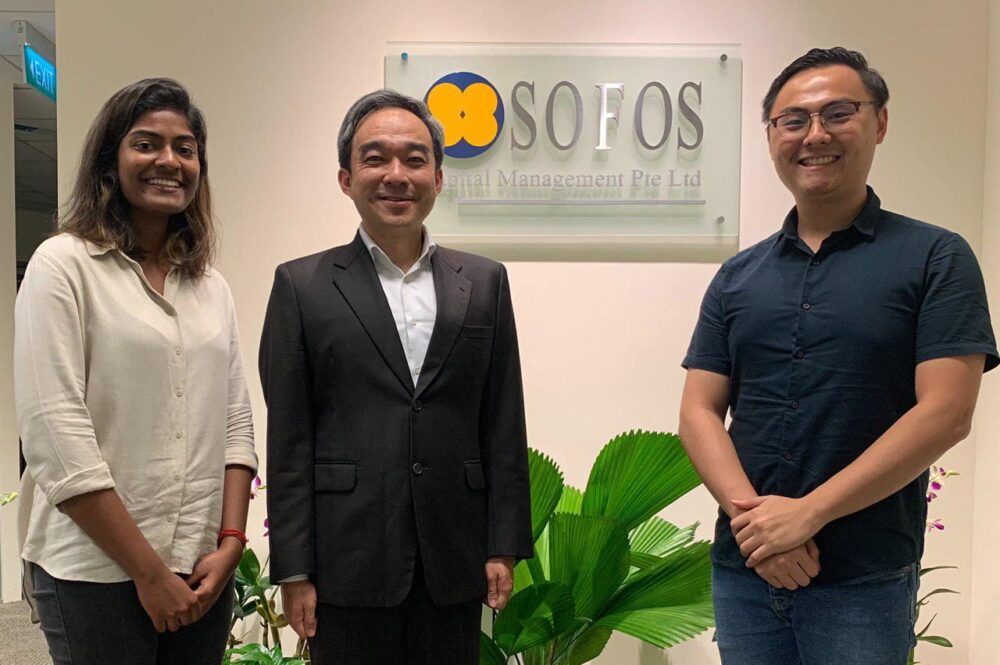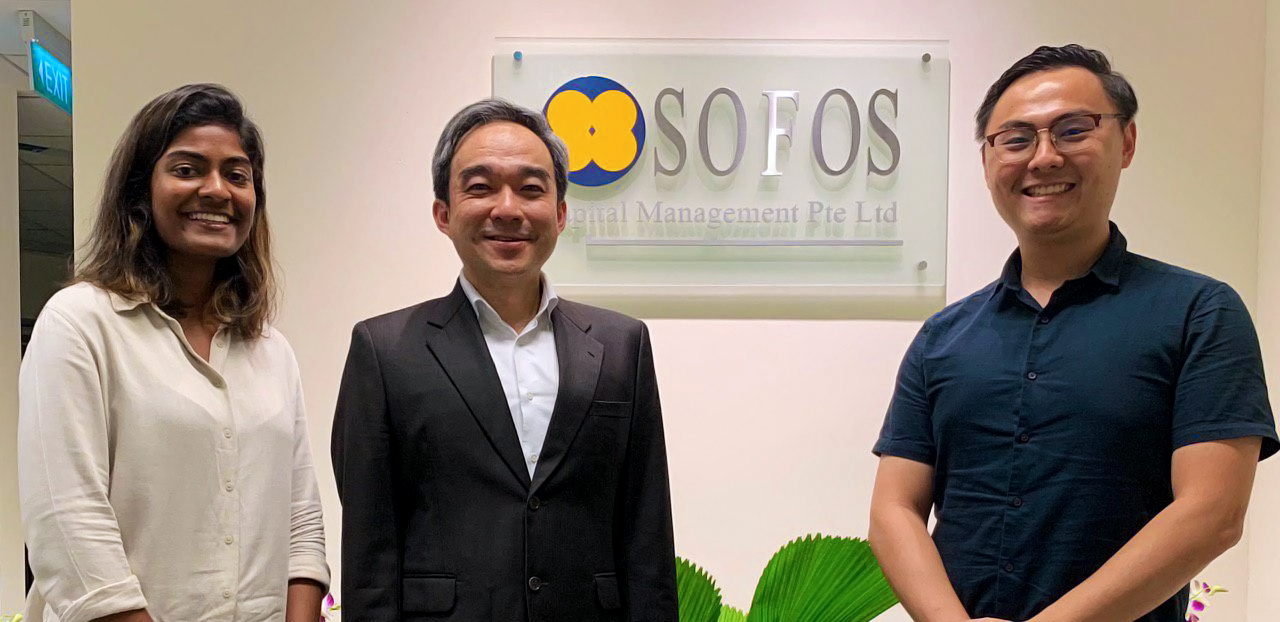Timothy is currently Chief Investment Officer at SOFOS Capital Management, a Private Equity and boutique Asset Management firm located in Singapore. Prior to that, he worked at Amundi, a French Asset Management company, as a Senior Portfolio Manager for 10 years and at Citigroup as an Assistant Portfolio Manager for 4 years.
Q: Could you share about your job scope and what a typical day at work is like?
At SOFOS Capital Management, we have two main businesses – private equity funds and multi-asset advisory, which is similar to wealth management. I look at investments in both the private equity and multi-asset advisory side. My role allows me to source for suitable investors with the chairman. I am also involved in deal pipelines where I evaluate deals and business partners. We have a team of analysts who will help us with the modelling. In our business, it is also equally important to find the right people to ask for funds. This can be done by speaking to family-run businesses, tycoons and other private equity firms who are keen on taking up our deal. Our private equity business focuses on infrastructure investing in the renewable, Greentech/Cleantech space in Southeast Asia. The total size of our funds, which are still yet to be fully developed, are estimated to be a few hundred million USD.
Apart from private equity I am also involved in multi-asset advisory. I advise clients, who are mostly from North Asia, on interesting investments. We work in a team of four people to give financial advisory. In addition to having a supervisory and advisory role, I also come up with investment presentations every week. These presentations summarise changes in the market as well as allow me to share my investment thoughts such as what factors to look out for when investing.
Q: What made you decide to pursue an asset management role even though your major was marketing?
When I was studying, asset management was not my first choice. Since young, I have always loved cars. I initially wanted to do business development of cars which involves marketing and advertising cars. However, in order to work in that industry, you need to have some sort of background in cars which I didn’t have at that point in time. As a result, I was not able to secure a decent interview with the top companies there.
Upon graduation, I started a temporary job in JP Morgan’s human resource department. A few weeks later, the asset management department was looking for an urgent replacement to take over some spreadsheets. I was given the opportunity to take up the role in asset management but had to learn almost everything, including performance attribution, from scratch.
During that time, Citigroup was also looking for a management associate for their asset management department and thus, I managed to land a job in Citigroup. After about three and a half years, I became a junior portfolio manager. The job was tough due to the long hours. I would usually report to work at 7.30am and end at 11.30pm. However, Citigroup was a great training ground where I had exposure to talents from all around the world, including countries like the United States, India and Hong Kong. I learnt a lot from Citigroup having implemented and delivered many ideas.
Q: Can you share about your first job experience coming out as an Assistant Portfolio Manager at Citigroup? How is it like to assist fund managers to update the holdings spreadsheet?
As a Portfolio Manager, I learnt how to multitask. The most important strategy when you are given many tasks is to identify which tasks are urgent or important. This will ensure that you prioritise and complete the important tasks first. Furthermore, it taught me to be humble and learn from other people. I had the chance to work with many talented colleagues and learnt a lot from them. Another thing I learnt is that wisdom is collective. Skills and experiences that you gain will carry you a long way in the industry even years later.
As a portfolio manager, I needed to show understanding and mastery of portfolio management. We were calculating attribution reports as well as sectors overweight and underweight report and many others. It was a tremendous learning journey.

Timothy Teo (centre), Chief Investment Officer of SOFOS Capital Management Pte Ltd
Bachelor of Business Administration – Marketing (2000)
Q: What made you move into Private Equity from asset management?
In 2016, the market was bad. Exchange traded funds were outperforming professionally managed funds as the volatile markets made it harder for professionals to manage the funds. These and other personal circumstances gave me a chance to explore private equity. Many skills I acquired in asset management remain very useful in private equity.
Furthermore, quite a few of my ex-investment banking friends were doing well in private equity after the Lehman Brothers collapse., Private equity is where you can express your creativity and talents. In the last few years, the growth in private funds have exceeded public funds since public funds like stocks have found it harder to perform and create value. In addition, the exits of private equity have historically been improving.
Q: What do you enjoy most about your current job in private equity?
It gives me a greater latitude to think. There are many types of Private Equity. My exposure to Private equity is mostly project-based and each of these projects have long-term contracts. Therefore, I have more time to analyse and make an informed decision as compared to equity fund management where it was more fast-paced.
Furthermore, the projects that we are doing make a positive impact on the environment.
Q: What are the traits investment officers typically look out, when hiring?
I would say curiosity, trustworthiness, diligence and humility. Always be curious and ask questions. Diligence is important as every company wants a hardworking worker.
Wisdom is collective. The skills and experiences you gain will carry you a long way.
Q: Are there any industry trends, opportunities, threats lately in your industry? How can students leverage on these?
Private equity and venture capital funds have been growing rapidly. There are two types of private equity firms, either portfolio-based or project-based. Portfolio-based private equity firms invest in a company so as to turn it around before exiting and getting a return for the exit. A project-based private equity firm invests in projects like infrastructure instead of the entire company. However, regardless of the type of firms, private equity firms usually have small teams where they hire auditors, bankers, lawyers, operation managers and those with corporate finance background. Therefore, if you want to enter private equity it would be advisable to accrue some experience first as they are less likely to hire fresh graduates.
The rise of exchange traded funds is also becoming a very big challenge. This has caused fees in asset management to be compressed. It is a game changer in the industry as many people are leaving brokerage and some moving into wealth management. Private banking will also be getting tougher with certain central banks are controlling the funds to be kept onshore, making it harder to get investments.
Lastly robo-advisory is on the rise. That could be one area to venture into. You can either start a robo-advisory firm or join one. These firms focus on extrapolation of data and create algorithms so as to provide advice to clients.
Q: Is there any advice you have for NUS business students seeking a career in finance?
Looking back, I would say not to go into finance with the sole mindset of making money. You have to be passionate about what you do. With passion, you will do well in any field as you would be willing to take more informed risk to ensure better results. In return, you will be remunerated well. Also, always strive to be the best, no matter what you are doing.
One important advice I would give is not to be affected or influenced by what your friends choose to do upon graduation. Everybody’s track is different, there is no one correct track that you have to follow to be successful.
The Alumni Spotlight Stories is a weekly series that explores a Bizad alumni’s journey from school to the working world. The story was first published in “Alumni Spotlight Stories: From Student Life to the Peak of your Career” compiled by the NUS Business School Alumni (NUSBSA).




